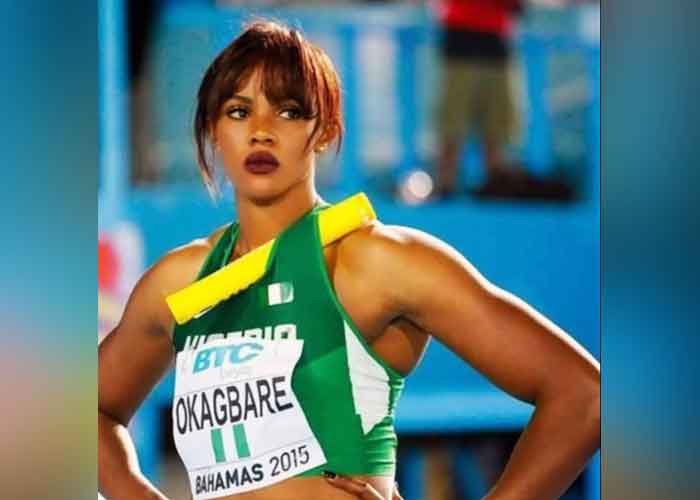The Nigerian track and field Olympic silver medalist, Blessing Okagbare says her 10-year ban from athletics slammed by the Athletic International Unit (AIU) will be subjected to a legal review.
Okagbare, who responded through her Twitter account revealed that she has informed her lawyers to take up the case apparently on her behalf to repress the decision of the AIU.
In her tweet, she said, “My attention has been drawn to the statement issued by the AIU regarding its disciplinary panel decision. My lawyers are currently studying it for our next line of action which we will inform you soon.”
The AIU, a disciplinary organ of the International Associations of Athletic Federation (IAAF), yesterday, had slammed 5 years each against the Delta-born sensational sprinter on two separate counts of doping and uncooperative attitude with the investigative panel.
The IAAF disciplinary organ which was formed in 2017 to monitor the usage of prohibited drugs by athletes and sanction offenders therein, had found Okagbare culpable and issued its verdict on the conclusion of its findings.
However, Okagbare, whose record for the fastest time at 10.85 seconds in the Women’s 100 meters Commonwealth Games is yet to be broken, has refuted the AIU’s statement that she uses prohibited substances to enhance her performance in track and field events.
Before the AIU’s decision, Okagbare in her defence during the panel denied indulging in exercises that are against the World Athletics anti-doping rules.
According to the 33 years old athlete, she explained the Human Growth Hormone AAF on 30 July, 2021, the same date the World Anti-Doping Agency (WADA) accredited laboratory in Lausanne, Switzerland, reported it found prohibited Human Growth Hormone (hGH10) in her second sample as quickly informed her.
Read Also: N100 Billion Dirty Contracts: Senate Summons Top NDDC’s Management Staff
In her explanation, the athlete opined that the discovery of WADA prohibited substance (hGH AAF) in her sample may have resulted from the pills and injections she took for 3 days to treat fever, change in her menstrual cycle including intense bleeding, thyroid medications, use of prenatal vitamins, use of supplements and consumption of contaminated food.
Furthermore, on August 11, 2021, precisely, the athlete insisted on a retest of the second sample by the WADA accredited laboratory, Lausanne, in the presence of her representative and after its analysis, hGH AAF was confirmed.
Meanwhile, a recombinant erythropoietin EPO14 was reported to be found in Okagbare’s first sample on August 12, 2021, by the WADA- accredited laboratory in Cologne, Germany, and the sensational sprinter was notified as well.
In reaction to the results of the analysis by Germany situated WADA-accredited laboratory, the Olympic silver medalist denounced ever taking EPO AAF adding that she had explained how traces of prohibited substance (hGH AAF) were found in her samples.
Okagbare said, “This is the second AAF reporting substance. I have no explanation how there [sic] were found in my sample, as I have not taken anything relating to this substance.”
While the world ponders on Okagbare’s next line of action against her ban from Athletics, the Court of Arbitration for Sports (CAS) recently handed a favourable verdict to 15 years old Russian Olympic figure skater, Kamila Valieva, who failed a doping test on 25 December, 2021.






